Navigating Schism Over LGBTQ+ Rights: UMC at a Crossroads at General Conference
Analysis by Christopher H. Evans | Professor of the History of Christianity, Boston University
The United Methodist Church’s General Conference began Tuesday in Charlotte, North Carolina, and goes through May 4. Originally scheduled for 2020 and delayed three times due to the COVID-19 pandemic, this meeting of the church’s legislative body comes at a critical time for the United States’ second-largest Protestant denomination.
In 2022, conservative Methodists announced a break with the UMC, forming the Global Methodist Church. These leaders believed that the UMC had become too liberal, drifting away from orthodoxy. The issue at the heart of the split, however, revolves around the UMC’s long-standing battle over LGBTQ+ rights.
This denominational split draws comparisons to one in 1844, when Methodists divided over slavery. As a scholar of American religious history and Methodist studies, I see parallels but also great differences between the current schism and the one in 1844.
Both schisms center on predominant social issues of their eras. The current schism, however, comes at a time when United Methodists, like other American churches, must navigate a changing religious landscape – one where church membership is declining, especially among younger Americans.
Methodist roots
The UMC traces its origins to the 18th-century Anglican clergyman John Wesley, who sought to reinvigorate Anglicans’ sense of personal faith.
Emphasizing piety and social engagement, Wesley’s followers spread Methodism throughout the British Isles and North America. As the movement grew, his followers separated from the Anglican Church to form several Methodist denominations.
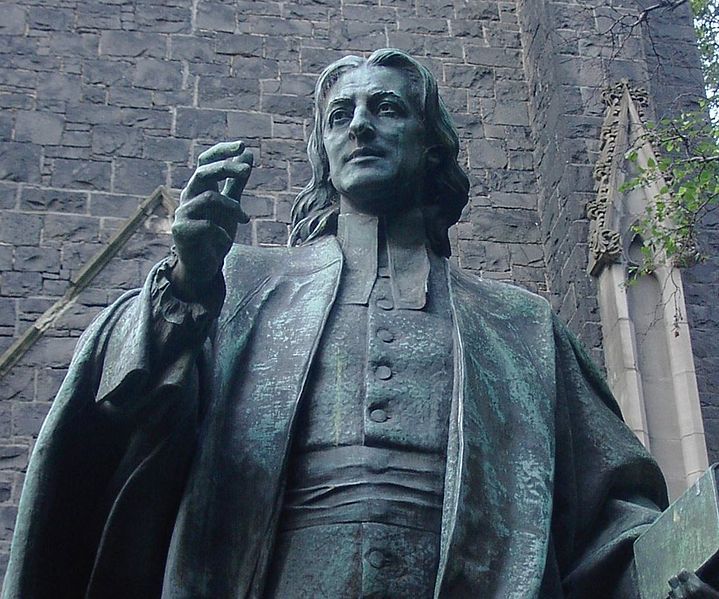
The first Methodist church in the U.S., the Methodist Episcopal Church, was founded in 1784. This church and smaller Methodist denominations grew rapidly. By 1850, approximately 1 in 3 Americans affiliated with a church was a Methodist.
Today, there are 80 Methodist and Wesleyan denominations around the world, with the UMC being the largest.
The 1844 rupture
Like other Protestant churches before the Civil War, Methodists were divided over slavery.
Wesley viewed slavery as a great social evil that deprived enslaved people of God-given human rights. However, U.S. Methodists – including one of the founders of the Methodist Episcopal Church, Francis Asbury – worried that enforcing the church’s prohibitions against slavery would alienate members in the South. For much of the early 19th century, Northern and Southern Methodists followed Asbury’s lead, seeking to prevent a formal schism.
At the same time, Methodism fractured. African Americans in the Methodist Episcopal Church were barred from being ordained as ministers, and church members often worshipped in segregated congregations. This led to the formation of many independent African American Methodist churches – the largest being the African Methodist Episcopal Church, founded by Richard Allen in 1816.
At the 1844 General Conference, the slavery issue boiled over into a major schism. Delegates voted to remove from office a bishop, James Osgood Andrew, because he owned slaves. Andrew’s removal angered Southern delegates who argued that slavery was sanctioned in the Bible. In 1845, Southern Methodist leaders withdrew from the denomination, forming the Methodist Episcopal Church South.
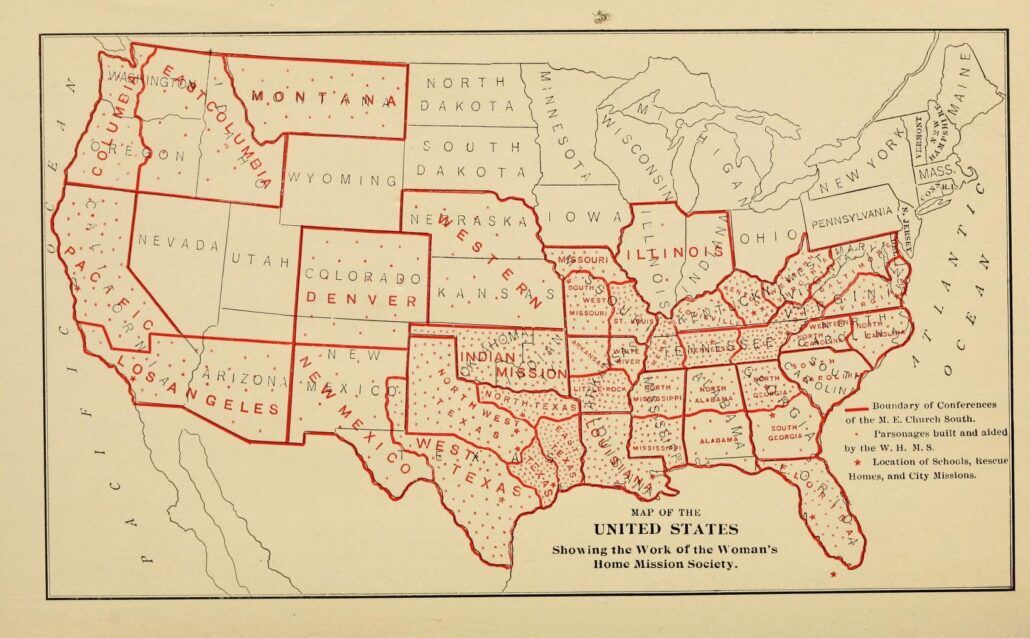
In 1939, these Northern and Southern churches reunited. Together with another Protestant denomination with historical ties to Methodism, the Evangelical United Brethren, they then combined to form the UMC in 1968.
Debating homosexuality
In 1972, the General Conference adopted a formal statement asserting that homosexuality was “incompatible with Christian teaching.” Subsequent conferences tightened these restrictions, notably in 1984, when the church barred what it called “self-avowed practicing homosexuals” from being ordained.
Since the 1970s, groups on both sides of this issue have mobilized. An organization called the Reconciling Ministries Network has worked to bring together UMC congregations who support the full inclusion of LGBTQ+ people. Conservative groups, meanwhile, such as a caucus called the Good News Movement, have campaigned to enforce the existing LGBTQ+ prohibitions.
In 1996, the General Conference added legislation prohibiting clergy from conducting same-sex weddings – though the number who did so increased significantly.
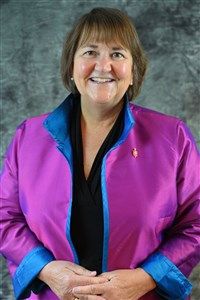
In recent decades, members of many U.S. churches, including United Methodists, have shown greater acceptance toward LGBTQ+ people. The 2016 election of Karen Oliveto as the first openly gay bishop of any gender in the UMC marked these shifting attitudes.
Conservatives continue to oppose reforms, including a growing number of United Methodists from outside the U.S – an increasing portion of the church. For example, many African United Methodists come from nations with strict laws banning homosexuality. Of the 862 delegates attending the upcoming General Conference, 380 will be from outside the U.S. Nearly 300 of these delegates will come from Africa.
At an impasse
Conflicts between conservatives and progressives came to a head in 2019, when bishops called a special conference in hopes of preventing a schism.
Their council endorsed what was called the One Church Plan, which would have allowed United Methodists in different countries more autonomy. Specifically, they could determine how to address questions on sexuality.
However, delegates voted overwhelmingly for what was called The Traditional Plan. This kept the church’s restrictions against LGBTQ+ people in place, while calling for more punitive measures against pastors who conducted same-sex weddings.
The 2019 conference then passed a resolution giving local congregations the option to leave the UMC over matters of sexuality. Congregations were given until the end of 2023 to disaffiliate, although the ramifications were to be finalized at the 2020 General Conference.
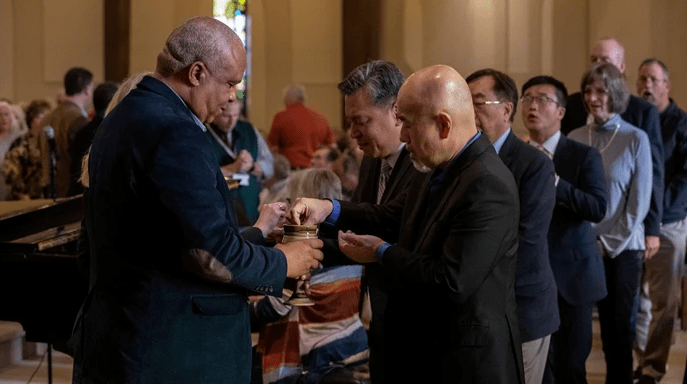
This session was repeatedly postponed, however, due to COVID-19. Doubting that U.S.-based leaders would uphold the prohibitions of the Traditional Plan, a group of conservatives formed the Global Methodist Church in March 2022, triggering an exodus of several local churches. As of early 2024, more than 7,600 churches have disaffiliated, representing roughly a fourth of United Methodist congregations.
Uncertain future
Ahead of the 2024 General Conference, conservatives have indicated their intention to lobby to extend the deadline for disaffiliation. Some progressive United Methodists, frustrated by the UMC’s persistent refusal to expand LGBTQ+ rights, have considered forming a third Methodist denomination.
Regardless of what happens in Charlotte, Methodist churches will face challenging futures.
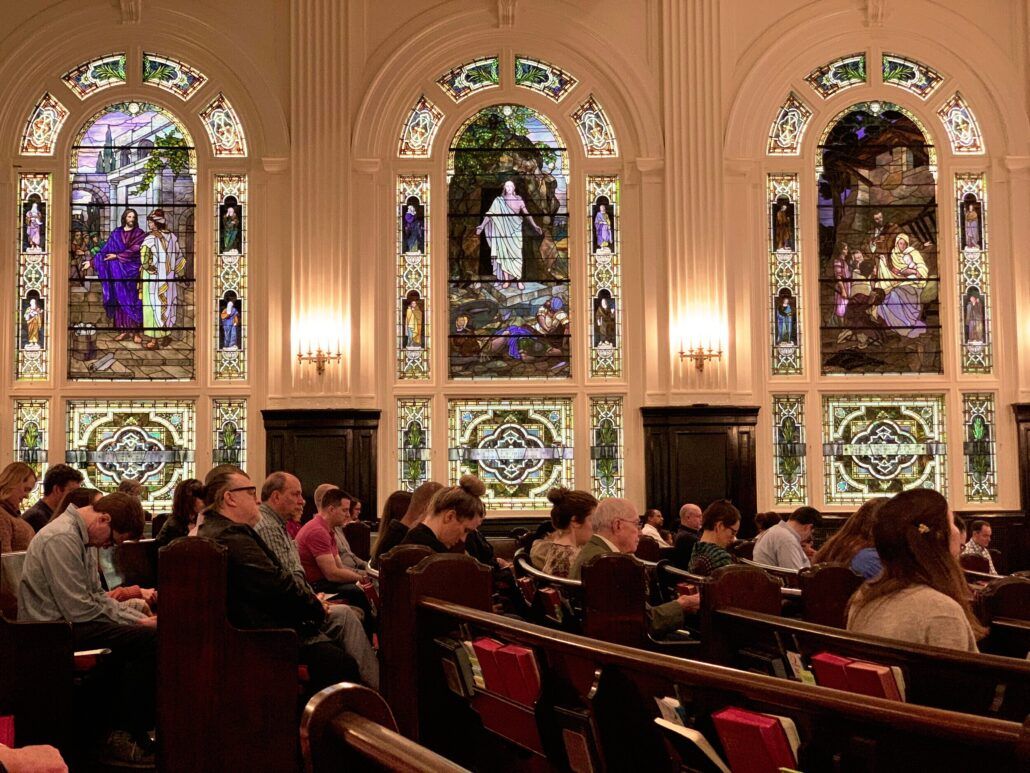
Unlike 1844, when many churches were growing rapidly, the current schism comes as American Protestantism is shrinking. This includes not only mainline Protestant denominations, but more conservative churches as well. In 1968, United Methodist membership in the U.S. was 10.3 million; at the end of 2018, it was 6.7 million.
Another serious challenge is the rising percentage of Americans with no religious affiliation, commonly called religious nones – many of whom are disillusioned by anti-LGBTQ+ policies.
Regardless of the General Conference’s outcome, Methodists face a religious landscape unknown to their 19th century predecessors.
The views expressed in this opinion column are those of the author and do not necessarily reflect the views of FāVS News. FāVS News values diverse perspectives and thoughtful analysis on matters of faith and spirituality.








